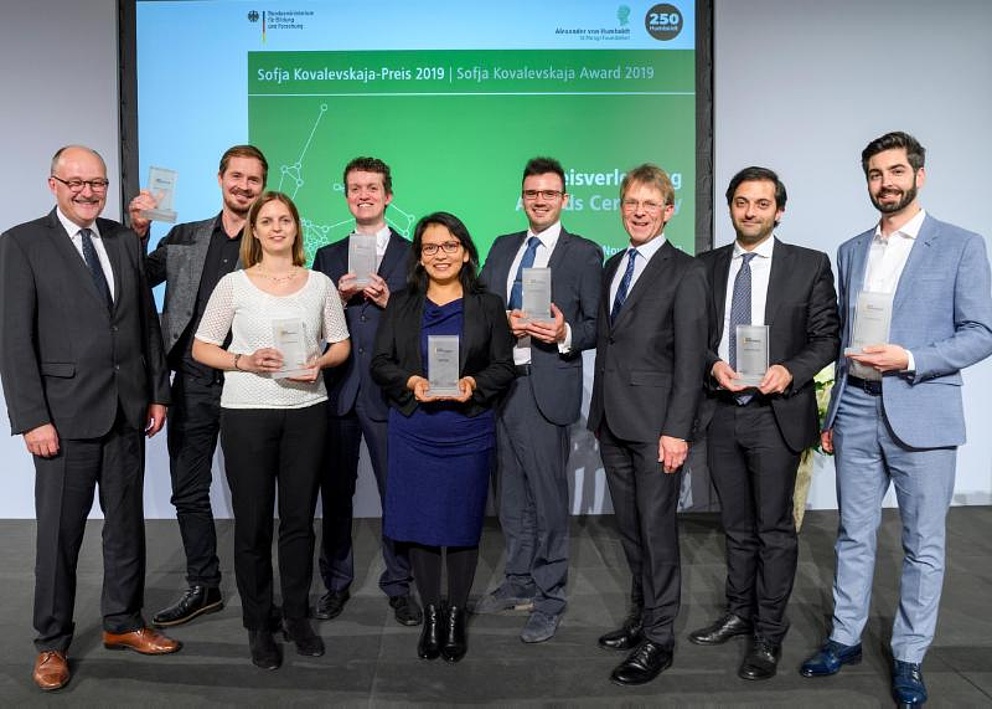
Contact
Press, Communications and Marketing
Tel.: +49 228 833-144
Fax: +49 228 833-441
presse[at]avh.de
updated on December 13, 2019
Seven young researchers from abroad received the Sofja Kovalevskaja Awards, each of which comes with up to €1.65 million in funding. The awards were presented by Michael Meister, Parliamentary State Secretary to the Federal Minister of Education and Research, and Hans-Christian Pape, President of the Humboldt Foundation, during a special ceremony held in Berlin on 20 November. Using this award money, the seven award winners - two women and five men - will have the opportunity to conduct research free from administrative constraints at a German university or research institute of their choice for a period of up to five years and develop their own research group for this at their host institute. The award is financed by the Federal Ministry of Education and Research and is one of Germany’s best-endowed research awards.

The trustworthiness of science
Addressing the award winners, Humboldt Foundation President Hans-Christian Pape said, “We want you to have the freedom to follow your ideas and instincts, to venture bold hypotheses and not to be daunted by the possibility of failure. We want you to have the freedom to concentrate fully on your research. For this, we place our trust in you, gladly and in good conscience.”
President Pape however also stressed the social responsibility these young scientists bear as a result. “In our society with its divided responsibilities, science is responsible for supplying the best available knowledge”, he noted. “We cannot however allow ourselves to act as if we always have definitive solutions at hand. We must communicate in transparent ways and openly point out things that are not certain.” In light of the extreme pressure on researchers to publish, the overheated review system, and news reports about scientific misconduct, judiciousness and self-criticism are needed to preserve or restore faith in the trustworthiness of science, Pape added. “However, I strongly believe that you - as the next generation - will help to change things, strike out on new paths and call undesirable developments into question. You have it in your hands and can, with good science, help us fulfil our responsibility to society“, Pape declared.
Cooperation and networking
Michael Meister, Parliamentary State Secretary to the Federal Minister of Education and Research, stressed that all of society benefits from internationally networked science, and that the highly competent Kovalevskaja Award winners could make vital contributions to this: “Globalisation, climate change and digitalisation are common challenges that no one can effectively master on their own. Innovative, viable solutions are virtually inconceivable without international cooperation and networking, without the ideas of minds that are open to the world, that are in a position to think different perspectives through and then link them together.”
